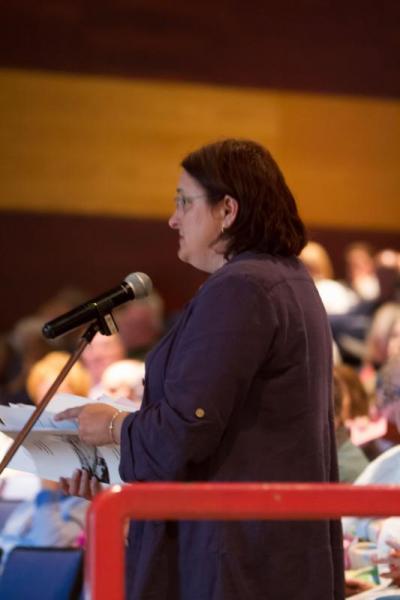Onset Pier rebuild moves ahead after voters OK $250,000 for engineering plans
Plans to rebuild the Onset Pier are moving forward after voters OK’d spending up to $250,000 in Community Preservation Act funds on Monday for an engineering study, but not before some questioned the legality of such a move.
Each year, the Community Preservation Committee allocates money to projects through the Community Preservation Act in four categories: open space, historic preservation, affordable housing and recreation. The money is raised through a surcharge on property tax bills. The state then matches a percentage of the town-raised money. Funds must be approved at Town Meeting.
The approved funds will be used to develop engineering plans for repairing Onset Pier in a bid to get the project “shovel ready” and primed for grant funds, according to Wareham Department of Natural Resources Director Garry Buckminster. He noted that projects that have the necessary engineering work already done receive priority regarding grants.
Buckminster said a survey was done on the pier in 2014 that revealed structural issues, such as loose fasteners and failing siding. The same survey estimated an overhaul would cost $4 million. While the previous survey revealed the issues facing the pier, the new engineering plans will layout a path forward for making those repairs.
The request met resistance from Onset activist Lisa Morales, who said the request didn’t follow state guidelines.
“The percentage of the pier’s commercial use and use as a town office for the harbormaster makes Community Preservation Act fund use questionable,” said Morales.
Under state law, Community Preservation Act funds must be used for projects related to one of the four categories. She also said approving the funds would be “illegal.” She said state law forbids Community Preservation Act funds from being used for rehabilitation on projects that weren’t originally built using act money.
Officials disagreed, saying it is up to the town’s attorney to determine whether a project meets Community Preservation Act requirements and thus can be voted upon st Town Meeting.
“To say this is illegal is simply untrue,” said Selectman Peter Teitelbaum.
He and Community Preservation Act Chair Sandy Slavin noted state law was changed a few years ago to allow cities and towns to use funds for projects not originally built using act money.
Morales and others said that the pier, because sightseeing boats dock there and requires a parking fee, is commercial, not recreational, in nature.
Town attorney Richard Bowen disagreed. He noted that if a fee was charged to use the pier at all then that would have changed his determination.
“What we have is a clear admission that recreational activity does take place on the pier,” said Bowen. “I’ve heard no one suggest you can’t go on the pier unless you pay a fee.”
Opponents also said renovating the pier would be a violation of a 1916 court decree that keeps the beaches free of development and open for public use. Again, officials noted that the decree specifically exempts the pier, originally described as a wharf, from the decree.
“The court, back in 1916, said the wharf, which is the pier, had public value,” said Bowen. “And is not subject to the restrictions of the decree.”













